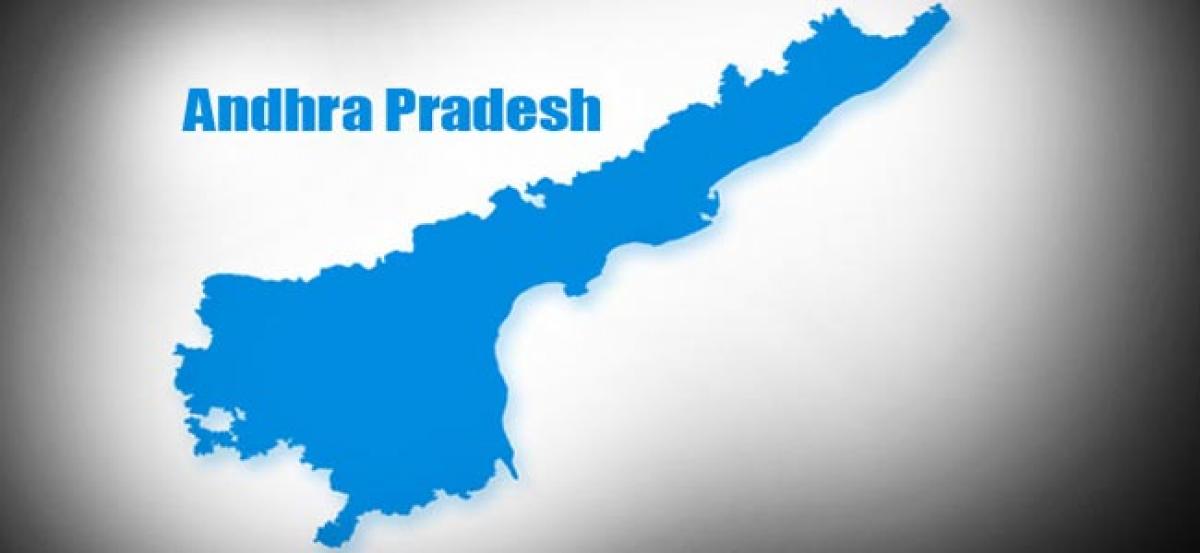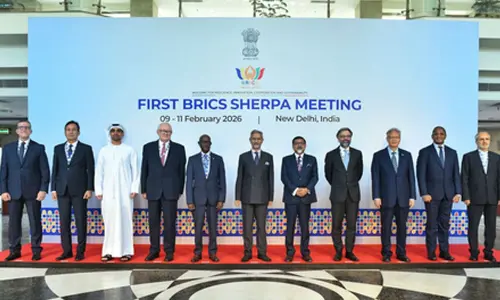Why Andhra Pradesh didn’t get special tag?

But why did AP lose the special tag? Here are six reasons why the Narendra Modi-led government denied the special category status to Andhra Pradesh.
In Andhra Pradesh, special category status (SCS) has now become an emotive and a politically-explosive issue. There is a valid reason for that. AP has lost the revenue-churning capital city of Hyderabad to Telangana in the bifurcation and with it, a global IT hub, India’s pharma hub, a major cluster for agriculture seeds, and a large number of small and medium enterprises (SMEs) that dot several industrial parks located in the City of Pearls and areas surrounding it.
To be frank, it will take decades for Andhra Pradesh to have a capital city and industrial hubs that can match those of Hyderabad even if the State government puts the development on a fast track. But the SCS, if granted, will help it leapfrog a few notches and emerge as a leading industrial hub of the country within a decade or so.
But the State's hopes of making a faster industrial progress have gone for a toss now as the Narendra Modi-led NDA government denied it the special tag. Intriguingly, Bharatiya Janata Party (BJP), the main constituent of the NDA, and its leaders like M Venkaiah Naidu, a leader of national stature from AP, fought hard for the special tag to AP and extracted a promise for the same from the erstwhile UPA government when it divided AP in 2014.
Gujarat strongman Narendra Modi also promised the SCS to AP, while campaigning in the State as the prime ministerial candidate of the BJP and NDA. TDP president N Chandrababu Naidu, who rode to power in AP in alliance with the BJP, demanded the special tag for 15 years during the elections. All these promises turned out to an empty rhetoric as the NDA government went back on the promise and, to the shock and utter disappointment of AP people, announced a special package instead.
But why did AP lose the special tag? Here are six reasons why the Narendra Modi-led government denied the special category status to Andhra Pradesh.
Existing norms
The special category status is granted to those States which fulfill any of the following five norms
1) Hilly and difficult terrain
2) Low population density and/or sizeable share of tribal population
3) Strategic location along borders with neighbouring countries
4) Economic and Infrastructure backwardness
5) Non-viable nature of State finances.
Obviously, AP doesn't fulfill any of the norms. So, it is not eligible for the SCS under the existing norms. If the central government wants to accord the SCS to AP, it has to change the norms to suit geographical, economic and social conditions in AP. However, the norms can only be changed by the National Development Council (NDC) comprising State Chief Ministers, Prime Minister and Union Ministers in consultation with the Planning Commission. But, the Narendra Modi government scrapped the Planning Commission and brought in NITI Aayog in its place. And, there is no clarity as yet whether the NDC is in existence or not. Even if it is in existence, Chief Ministers of other States will oppose the SCS to AP or demand similar facility to their respective States. So, there is no way the central government can change the norms in near future.
Politically counterproductive for BJP, Congress
States like Bihar and Odisha have been demanding special category status since a long time. Other States like Madhya Pradesh, Chhattisgarh, Uttar Pradesh and Jharkhand are far more backward than AP. Incidentally, the saffron party is politically stronger in all the above-mentioned States, barring Odisha. So, offering SCS to AP will be politically counterproductive and explosive for the BJP. The Congress, though in the Opposition now and appears to be championing the cause of AP, will face a similar challenge when push comes to shove.
Stronger Modi
Prime Minister Narendra Modi is politically stronger now than he was before the 2014 general elections as his party, the BJP, secured absolute majority in the Lok Sabha after a gap of nearly three decades. The BJP had struggled to rope in regional allies during the run-up to the 2014 general elections. The scenario is totally different now and every major regional party from Kashmir to Kanyakumari is ready to extend its support to the BJP-led NDA dispensation. It is obvious that Modi wouldn’t want to distance the regional satraps, both men and women, from the BJP by offering SCS to AP because he might need their support if the BJP fails to get clear majority in 2019 general elections. So, ‘the firm no to the SCS to AP’ has obviously come from the all-powerful Prime Minister Modi, not from anyone else in the current NDA dispensation. This decision shows Modi’s political sagacity though. As he doesn’t want the issue to get out of control, he tried to nip the emotions in bud.
Opposition from neighbours
Tamil Nadu Chief Minister J Jayalalithaa shot a letter to the central government, voicing protests against the central government’s decision to offer the SCS to AP. This happened the day after the Parliament passed the AP Reorganisation Bill in 2014.
She strongly argued in her letter that there would be no level-playing field if SCS was to be accorded to AP and all the investment capital would pour into AP, depriving the neighbouring States their due share. She will always oppose the SCS proposal to AP tooth and nail.
Even Telangana will oppose. This was evident from the fact that a large number of industry bodies came together and held a marathon meeting immediately after the bifurcation, demanding SCS to Telangana if such a facility was to be extended to AP. They expressed concerns that several existing industrial units would shift to AP to avail tax incentives if the latter got the special tag. Karnataka, another neighbor to AP, will also oppose.
Congress leader from Karnataka and former Union Minister Veerappa Moily even questioned the NDA’s rationale behind offering the special tag to AP, saying it would harm his State’s prospects.
Not in the AP Reorganisation Act
The biggest hurdle for SCS to AP is that it is not included in the AP Reorganisation Act, 2014. The erstwhile Congress-led UPA government dodged the contentious issue cleverly. The then Prime Minister Manmohan Singh made a formal announcement in Rajya Sabha that SCS would be given to AP for a period of five years. However, his government had failed to include it in the Act. As there is no legal sanctity to the announcement, the NDA government is not duty-bound to implement his promise.
Now a small State with just 25 MPs
Undivided Andhra Pradesh played a key role in the formation of the central governments for nearly three decades as it had 42 MPs, the highest among the States from South India. The second-placed Tamil Nadu has 39 MPs. Andhra Pradesh is now left with just 25 MP seats post-division while the remaining 17 went to Telangana. The bargaining power of AP has come down considerably. So, it is not in a position to make a strong pitch for the SCS with the Prime Minister. Being a national political party, the BJP obviously weighs the pros and cons before according the SCS to AP. The cons obviously outweighed the pros.
Way forward
But what is the way forward for the truncated Telugu State to get the special tag? There are only two ways out. The AP government should bring pressure on the central government to include SCS to AP in the AP Reorganisation Act. It missed a golden opportunity to do so when the NDA government amended the Act in 2014 to transfer villages in seven mandals of Khammam district in Telangana to Andhra Pradesh, clearing a major hurdle for the construction of the Polavaram project.
However, it can demand inclusion of the special tag whenever the Centre amends the Act in future. Thereafter, it will be a cakewalk for the State to get the special tag as the central government will be legally obliged to honour the Act. A massive and widespread agitation by people is the second way to bring pressure on the Centre to grant special category status to AP if the government fails.








